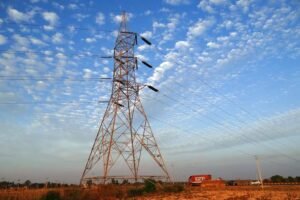Adani-Led Firm Faulted by Jaipur Court in ₹1400 Crore Case
|
General Studies Paper II: Judiciary, Statutory Bodies |
Why in News?
The Jaipur district court ruled that an Adani-led coal mining firm wrongfully obtained over ₹1,400 crore from a state electricity utility by claiming transportation charges not permitted under the contract. But as of now, Rajasthan High Court granted a stay on the district court’s decision.
Background of the Contract
- Allocation of the Coal Block: In 2007, the central government allotted a coal block named Parsa East and Kente Basan coal block, located in the forested area of Hasdeo Arand forests in Chhattisgarh, to a state-owned electricity utility Rajasthan Rajya Vidyut Utpadan Nigam Limited (RRVUNL). The block had an estimated reserve of over 450 million tonnes of coal.
- Formation of the Mining Joint Venture: To exploit this coal block, RRVUNL entered a joint venture in 2008 with a private company, Adani Enterprises. The joint venture was named Parsa Kente Collieries Limited. In this arrangement Adani Enterprises held 74% shares, while RRVUNL held the remaining 26%. This made the joint venture effectively controlled by the Adani-led firm.
- The MDO Model: Under the agreement, the joint venture was to act as a “Mine Developer and Operator” (MDO). Under this model, the private company (the MDO) would handle mining operations and deliver coal to RRVUNL for use in its power plants. The government utility would pay the MDO per tonne of coal delivered, based on an all-inclusive cost structure. Previously, coal blocks were allocated to companies that also operated power plants. The MDO model allowed private firms to run mining operations without having to own or run power plants.
- Contractual Obligations: The 2008 agreement between Parsa Kente Collieries and RRVUNL stipulates that the joint venture must deliver mined coal up to the nearest railway line. That means constructing and developing a railway siding — a dedicated rail link from the mine-head to the main railway network — to facilitate coal transport by rail.
- Delay in Railway Infrastructure: When mining commenced in March 2013, the required railway siding was not ready. Because of this, the parties agreed on a temporary arrangement: coal would be transported by road from the mine to the nearest railway stations. This road transport was not part of the original contract. They engaged a transport agency in March 2013 under this ad-hoc arrangement.
- Payments for Road Transportation: Although the road transport was outside the defined contract, the joint venture billed RRVUNL for the entire cost of road haulage — from the mine’s loading point to the railway station. Over time, these charges accumulated to a massive amount exceeding ₹1,400 crore.
- Interest on Delayed Reimbursement: Apart from charging transport costs, the Adani-led firm claimed that the state utility delayed reimbursement payments. According to a letter in March 2013, they had agreed that RRVUNL would reimburse within 15 days (or 7-day grace). The joint venture argued that delays forced them to take bank loans for the transport cost, resulting in accrued interest — they demanded about ₹65 crore as interest.
- Dispute & Court Proceedings: When RRVUNL refused to pay the claimed interest in February 2018, the joint venture attempted mediation in April 2018. That proposal was rejected in August 2018. Finally, the Adani-led joint venture approached the court in July 2020, challenging the non-payment of interest and seeking recovery.
Findings of the Jaipur District Court
- The Jaipur district court found that Parsa Kente Collieries Ltd claimed transport fees it had no contractual right to claim. The court noted that the joint venture did not build the railway siding that the contract required.
- The court said the contract required delivery up to the railhead. The court said road haulage was a temporary stopgap. The court held that the party which had defaulted on the siding should not pass transport cost to the buyer.
- The court found that the joint venture billed the state utility for road transport from the mine to the station. The court found that the bills ran into more than ₹1,400 crore and key original documents were not produced by the joint venture.
- The court said the absence of the main agreement and financial ledgers weakened the firm’s case. The court described the firm’s narrative as partial and unverified. The court held that the firm sought interest on delayed reimbursements even though it had not fulfilled its infrastructure duty.
- On 5 July 2025, the court delivered its verdict. It concluded the joint venture had “wrongfully gained” more than ₹1,400 crore. The court imposed a fine of ₹50 lakh on the company. Further, it directed the state government to request the Comptroller and Auditor General of India (CAG) to audit the entire deal between RRVUNL and the joint venture.
Current Scenario of the Case
Shortly after the verdict, the joint venture appealed. On 18 July 2025, the Rajasthan High Court granted a stay on both the fine payment order and the CAG-audit directive. That means the directed ₹50 lakh fine and audit are not being pursued for now. As a result, no further action (fine collection or audit proceedings) has started.
|
Comptroller and Auditor General of India (CAG)
|
|
Also Read: LIC Investment in Adani Group |











